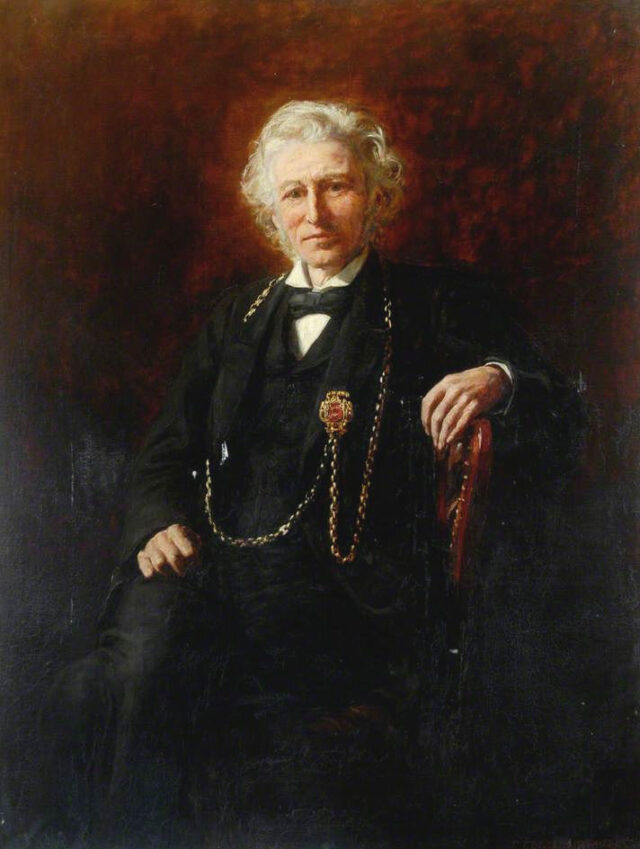
By Rachel Chapman
Over the centuries, North Shields has been the home of many great people committed to improving the lives of others.
One such person was Quaker, John Foster Spence (1818-1901), who was prominent in the religious, social, and political life of the town.
On his death, the Shields Daily Gazette said ‘he was indeed the ‘Grand Old Man of Shields’ and that ‘few men in the universe could show a record more brilliant with services to the community’. Today one of the one of the town’s schools – John Spence Community High – is named in his honour. So, who was he, and how did he earn such accolades?
John Foster Spence ran the family’s successful drapery business on the corner of Howard Street and Tyne Street until two years before his death. For six decades he served the community as a councillor, Mayor, alderman, magistrate and was an active member of more than 70 local committees and societies, which led to him being awarded the Freedom of the Borough of Tynemouth in 1894 for his lifelong devotion to the improvement of the town and its people.
As a young man, in 1840, he was involved in a campaign to build a Customs House in North Shields to free the port from Newcastle’s control and played an important role in the River Tyne Commission which improved the river for shipping.
He took a great interest in seafarers and was the first and only chair of the Tyne Sailors’ Homes (then the Tyne Sailors’ Homes) on New Quay from 1856.
The driving force behind the establishment of the Tynemouth Volunteer Life Brigade in 1864 following a tragedy when a steamship was grounded on rocks resulting in the deaths of 25 people, he remained an active member until his death. Whenever the alarm was raised, he could be seen running the two miles from his home, Chirton Cottage, to help.
He played a key role in the development of Northumberland Park, seeing this as an opportunity to provide much needed employment for local people.
For almost 50 years he was on the board of the Tynemouth Poor Law Guardians and was a familiar figure at the workhouse on Christmas Day having his dinner with people much less fortunate than himself.
He took a deep interest in the work of the Royal Humane Society and was their local representative.
He did a great deal towards educational advancement and was instrumental in founding the local technical school in Tyne Street in 1891.
With other leading local Quakers, he and his family were also involved in the abolition of slavery movement.
Local historian Mike Coates has researched the life and achievements of John Foster Spence, along with several others who helped to shape the town. His book, ‘North Shields Inspirational Folk’, has informed this article.
Mike said: “He was one of the great characters who helped to shape the town of today, working tirelessly to bring about improvements and staying active until shortly before his death. His newspaper obituary commented that he did ‘inestimable good in his day’.”
A display about John Foster Spence can be seen at the Old Low Light Heritage Centre, where Mike Coates’ book is also on sale.
































